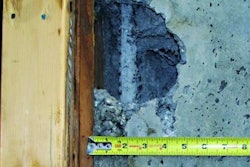In 2005, then-senator Barack Obama earmarked $1 million for a highway underpass in west suburban Franklin Park. Then-Rep. Rahm Emanuel, President Obama's future chief of staff, anted up another $928,000 earmark in the same bill.
"Securing this funding for the Grand Avenue Underpass is the result of the Illinois delegation working together in a bipartisan manner to put the interests of the people of Illinois first," Obama said in a 2005 news release.
The problem: State and local governments already had started building the underpass with other funding before the lawmakers inserted their earmarks. Earmarks cannot be used after a project has already been approved.
What resulted was an "orphan earmark," which the federal government treats like an undated check that could be cashed at any time.
An orphan earmark affects the federal budget only if it's cashed. Nevertheless, because lawmakers insert some of the earmarks into particular sections of transportation bills, many of the orphan earmarks also count against a state's share of federal highway funds and have taken billions of dollars away from state transportation departments across the nation.
The Obama and Emanuel earmarks wound up taking money away. Their $1.9 million in earmarks came out of the Illinois share of federal highway funding.
"By definition of where this money comes from, it was taking away money from another project for that year," says Chris Holt, who oversaw the state project.
White House spokeswoman Amy Brundage declined to comment on the Obama earmark. Ben LaBolt, a spokesman for Emanuel, says Emanuel did get $500,000 for the underpass project through a separate earmark in 2004. That earmark, LaBolt says, "allowed construction to move forward and the project to be completed."
More than 7,374 congressionally directed highway projects in which at least some money that lawmakers set aside remains unspent, a USA Today analysis of state and federal records shows.
In at least 3,649 of those earmarks, not one dollar has gone toward its intended purpose, sometimes because of simple, sloppy mistakes, the paper found.
The problem is so pervasive that almost 1 in 3 highway dollars earmarked since 1991 - about $13 billion - remains unspent, federal data show.
During the past 20 years, orphan earmarks reduced the amount of money that states would have received in federal highway funding by about $7.5 billion. That's $7.5 billion that states could have used to replace obsolete bridges, repair aging roads and bring jobs to rural areas.
Earmarks become orphaned for many reasons: Sometimes, earmarks are meant for projects that later get shelved. Projects might get mired in red tape, and some earmarks don't provide enough money or come too late to help. Other earmarked money may be spent years or even decades after being set aside.
Some orphan earmarks are leftovers from long-completed projects. In 1991, for example, Congress authorized $58.1 million "for various transportation improvements in connection with the 1996 Olympics" in Atlanta. The city has $2.7 million left that, by law, could be spent only on an event that ended more than 14 years ago.
Obama's proposed 2011 budget would cancel $263 million in orphan earmarks that were more than 20 years old.
Efforts to get Congress to free up the orphan earmarks have proved fruitless, as former Transportation Secretary Mary Peters attests. "We said to Congress, 'Give us the authority to pull this money back in and redistribute it,' " she says. "They said no."
Gannett News Service,Bringing home the bacon can backfire,In 2005, then-senator Barack Obama earmarked $1 million for a highway underpass in west suburban Franklin Park. Then-Rep. Rahm Emanuel, President Obama's future chief of staff, anted up another $928,000 earmark in the same bill.
"Securing this funding for the Grand Avenue Underpass is the result of the Illinois delegation working together in a bipartisan manner to put the interests of the people of Illinois first," Obama said in a 2005 news release.
The problem: State and local governments already had started building the underpass with other funding before the lawmakers inserted their earmarks. Earmarks cannot be used after a project has already been approved.
What resulted was an "orphan earmark," which the federal government treats like an undated check that could be cashed at any time.
An orphan earmark affects the federal budget only if it's cashed. Nevertheless, because lawmakers insert some of the earmarks into particular sections of transportation bills, many of the orphan earmarks also count against a state's share of federal highway funds and have taken billions of dollars away from state transportation departments across the nation.
The Obama and Emanuel earmarks wound up taking money away. Their $1.9 million in earmarks came out of the Illinois share of federal highway funding.
"By definition of where this money comes from, it was taking away money from another project for that year," says Chris Holt, who oversaw the state project.
White House spokeswoman Amy Brundage declined to comment on the Obama earmark. Ben LaBolt, a spokesman for Emanuel, says Emanuel did get $500,000 for the underpass project through a separate earmark in 2004. That earmark, LaBolt says, "allowed construction to move forward and the project to be completed."
More than 7,374 congressionally directed highway projects in which at least some money that lawmakers set aside remains unspent, a USA Today analysis of state and federal records shows.
In at least 3,649 of those earmarks, not one dollar has gone toward its intended purpose, sometimes because of simple, sloppy mistakes, the paper found.
The problem is so pervasive that almost 1 in 3 highway dollars earmarked since 1991 - about $13 billion - remains unspent, federal data show.
During the past 20 years, orphan earmarks reduced the amount of money that states would have received in federal highway funding by about $7.5 billion. That's $7.5 billion that states could have used to replace obsolete bridges, repair aging roads and bring jobs to rural areas.
Earmarks become orphaned for many reasons: Sometimes, earmarks are meant for projects that later get shelved. Projects might get mired in red tape, and some earmarks don't provide enough money or come too late to help. Other earmarked money may be spent years or even decades after being set aside.
Some orphan earmarks are leftovers from long-completed projects. In 1991, for example, Congress authorized $58.1 million "for various transportation improvements in connection with the 1996 Olympics" in Atlanta. The city has $2.7 million left that, by law, could be spent only on an event that ended more than 14 years ago.
Obama's proposed 2011 budget would cancel $263 million in orphan earmarks that were more than 20 years old.
Efforts to get Congress to free up the orphan earmarks have proved fruitless, as former Transportation Secretary Mary Peters attests. "We said to Congress, 'Give us the authority to pull this money back in and redistribute it,' " she says. "They said no."
Gannett News Service,



















